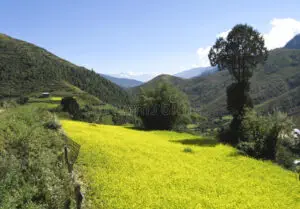The Unlikeliest Pandemic Success Story
How did a tiny, poor nation manage to suffer only one death from the coronavirus?

Over the course of three reporting trips to Bhutan since 2012, a word I heard innumerable times was resilience. It alluded to the fact that Bhutan has never been colonized, and to its people’s ability to bear hardships and make sacrifices. Resilience, I came to learn, is core to the national identity.

It should be noted that a large number of smaller countries, small island states, and those more remote from the international travel network have often done better. This is due to a number of factors, remoteness, social integration, responsive governments etc. It will be very important in the future to clearly analyze why some countries and regions have been more able to respond and better able to protect their citizens. This may be critical to success in the next global pandemic and also can inform responses to other important risks such as climate change.
Leave a Reply